Finding Connection Through Art - Cannes Week 2
New Films from Joachim Trier, Richard Linklater, and more.
This is Part Two of my coverage of this year’s Cannes Film Festival. You can read my overview of the first week here. You can also watch my video recap of the festival on my YouTube Channel. John Bleasdale, the author of the new Malick biography, was also gracious enough to have me on his podcast Writers on Film during the festival, you can listen to our chat here.
If the first week of Cannes was defined by heavy examinations of power struggles, suffering and oppression, the second week certainly provided some lighter fare, which (as much as I love films that face difficult struggles head on) was a welcomed break.
The Chronology of Water
Un Certain Regard / dir Kristen Stewart / US
I kicked off my second week with the debut film from an actor-turned-director Kirsten Stewart. Based on a memoir of the same name by Lidia Yuknavitch, The Chronology of Water’s fractured, visually poetic style follows the lead (played powerfully by Imogen Poots) as she tries to move through and beyond her traumatic childhood. I can’t disagree with some of the critics calling this “over-directed” but I’m impressed that Stewart isn’t playing it safe here. This has all the hallmarks of a strong debut; a clear vision, strong voice, and unique style. Refinement can come later, and I have confidence that if Stewart continues to direct, it will.
This is one of the more provocative, edgy films I saw at the fest, leading to a small but steady trickle of walkouts in my screening, but I quite enjoyed it. While a lot of movies I saw at Cannes had me hooked at the start and then felt like they faltered in the 3rd act, this movie did the opposite. I was unsure at first, but by the end it had won me over and it had one of my favorite endings of the festival—one which really resonated with me emotionally.
I think it might lean a tad too avant-garde to be a true awards contender and it certainly won’t be for everyone but I think it will have a intense set of fanbase among those who love it for what it is.
Nouvelle Vague
In Competition / dir Richard Linklater / US & France
Richard Linklater was one of the directors I encountered when I was young who introduced me to just how much freedom was available within the cinematic form if you were just willing to playfully explore. Why not just break all the rules? It’s an energy he borrows from the French New Wave directors of the 50s, and so to me it felt totally fitting that he choose to tell the story of the making of Godard’s Breathless, the most well known and influential film from the French New Wave era.
Watching this at Cannes in an audience of about 1000 film critics was such a uniquely specific experience—the movie literally opens with scenes of critics at Cannes. You could almost see this whole movies as pandering to the audience, but Godard looms so large as a figure for filmmakers and critics alike that making a film about him that will make those people happy is a daunting challenge. I think a lot of people will want this to be way more than it is, which is basically a fun Linklater hang-out film about making a movie set in the 50s.
I had a blast watching this, and was really taken by the excellent casting and full commitment to making the film look and feel like it was shot in the 50s. Everything, down to the title cards commits to the period.
Linklater said in the press conference that he wanted to it feel like the filmvane the characters had no knowledge of how influential what they were doing would be—because that’s how it would have been in reality. You see that often in period films about significant moments, the narrative “voice” of the film almost has an anachronistic prescience about what is coming. This is sometimes what we want and works great, but its fun to see someone deliberately play around with the opposite, and I think its very successful here. For a movie about the making of one of the most influential films ever made, it’s refreshingly devoid of a sense of self-importance. Sure Godard (the character in the film at least) is arrogant, but you can also see how out-on-a-limb he was. He didn’t know it would work, nobody did.
I think its funny to watch some critics act like this movie is disrespect to Godard because it’s not more profound or formally radical. On the way out of the screening I heard one critic say “he’s rolling in his grave.” And I doubt he is but if so… maybe let him roll, it’s good exercise. Why should we be so precious about a figure who was so radically un-precious about the form? And sure, for many of the critics at Cannes with decades of cinephilia under their belts it might not reveal anything profound about Godard, but this will undoubtedly ignite an interest in a bunch of young people who have never encountered the New Wave at all, and I think it’s a worthy entry point.
This is easily Linklater’s best movie since Boyhood and is a joy to watch. I doubt it’ll have a big audience outside of cinephiles, but I can see this having a long life as a cult classic.
Die My Love
In Competition / dir Lynne Ramsey / United States
What can I say about Lynne Ramsey’s primal growl of a film, Die My Love? I’m sure you’ll hear that “it’s about postpartum depression” something that the movie does touch on, but I think its reductive to say that’s what the film is about. The films stars Jennifer Lawrence as an isolated mother and writer struggling to cope when she moves into the country with her husband (Robert Pattison) and son, but as with much of Ramsey’s work it feels like there’s an almost ferocious energy brewing beneath the surface. The way it comes forth is sometimes sudden, sometimes surreal, and the lines between dream, fantasy, and reality blur.
The performances, particularly Lawrence’s (as well as Sissey Spacek’s as the doing-her-best mother-in-law) are fantastic. This is definitely the best work we’ve seen from Lawrence in a while. The sound design is absolutely wild. Overall, for how somber the subject matter is, the energy of the film is very punk. It’s dark but not dower. I can almost here the old-timey trailer voice saying “from the twisted mind of Lynne Ramsey.”
It really feels to me like it’s about the need to express something, a certain kind of energy, but being stuck in a landscape where that expression would get you ostracized, and where no one around you really relates or can understand that need. Here that certainly relates to postpartum, and to patriarchal oppression, but it’s also tapped into something very “animal” to borrow a word Ramsey herself used in the press conference, and which is illustrated almost literally in the film.
This one had a solid number of haters at the festival, and I definitely wasn’t among them, but I definitely didn’t find it to be a perfect watch and I was loosing my bearing a little by the third act. Still it’s one I’ll happily give a second chance, and the star power might propel this beyond where a film this challenging might normally go. While this is more mild in many ways, the success of something as wild as The Substance last year has me thinking that audience are ready for stranger fare.
Urchin
Un Certain Regard / dir Harris Dickinson / United Kingdom
Another directorial debut from an established actor, this time Harris Dickinson, who I first became aware of a few years at Cannes when I saw The Triangle of Sadness. I really enjoyed this story about a young man trying to clean up his act and get off the streets.
It feels very Safdie Brothers-inspired, but not derivative, and Dickinson obviously knows how to direct actors and manage the camera. I’ll be excited to catch this again and see what he does next.
The Phoenician Scheme
In Competition / dir Wes Anderson / United States
Wes Anderson’s latest, The Phoenician Scheme is an undeniably beautiful and delightfully funny continuation of his streak of storybook narratives. There’s been a doubling down on his style since Grand Budapest, and at this point it feels like we’re almost watching the kind of movie that a character from a Wes Anderson film would have made. This leaning deeper into the style certainly has its detractors, but at a time when so much stuff genuinely looks the same I’m happy to see work from someone who has such a completely original visual voice.
The standout feature of this film is that it is Anderson’s most character-centered film since The Grand Budapest Hotel and is lead strongly by Benecio Del Toro with newcomer Mia Threapleton, and Anderson-first-timer Micheal Cera in excellent support roles. I had a blast, but it’s quite dense and I was in a festival haze, so I’ll definitely need to see it again to see how it ranks in the filmography.
My Father’s Shadow
Un Certain Regard / dir Akinola Davies Jr. / Nigeria
One of the things I love most about international film is when filmmaker gets to introduce you to their country through their eyes. This is done with so much warmth and care by Akinola Davies Jr. whose debut My Father’s Shadow became the first Nigerian film to premiere in competition at Cannes.
The movie is set with an election crisis as a backdrop, but the core narrative surrounds two brothers getting the rare opportunity to spend the day with their father visiting Lagos. It’s a beautiful, touching film, with wonderful attention to craft and performances. It gives us a lovingly detailed glimpse of Lagos and Nigeria, but is grounded within universal themes of grief and coming of age. This is just a really solid knock out of the park that I’ll happily recommend to everyone and if MUBI plays their cards right I think this could garner some awards traction at the end of the year.
The Love That Remains
Cannes Premiere / Hlynur Pálmason / Iceland
Hlynur Pálmason’s Godland was one of my favorite movies of 2023. With The Love That Remains, the Icelandic filmmaker returns with a quiet, pastoral, drama about family, art, nature, and love.
There are three children, a dog, some chickens, a mother who makes her art, and a father who works on a fishing boat. Not much happens, we follow their quiet life as the parents work through a separation, but these beautifully languid moments are punctuated by brief hits of surreal and endearing drama.
Ultimately a meditation family, nature, time, and change, it felt soothing to my soul, and like a reminder of all the parts of life that we let pass us by all too easily. Some of my favorite editing of the festival, and I film I look forward to watching again when I need a break from the breakneck pace of modern life and a reminder of the beauty I do not want to take for granted.
Splitsville
Cannes Premiere / Micheal Covino / United States
The most entertaining screening of the festival for me was the premiere of Michael Covino's new film Splitsville. The audience, which included Jason Mamoa, Ari Aster and Sean Baker, really loved this incredibly well crafted, romantic comedy about two couples in a sort of love-triangle. I’m not exaggerating when I say the laughter was uproarious. At the end of the Premiere after the applause died down Covino said “We need to keep making cinematic comedies for Cannes.” I agree—with the addendum that they shouldn’t just be made for Cannes.
“Cinematic comedy” is a great way to describe Splitsville because it’s a movie that uses the entire toolbox of filmmaking for comedic effect. It’s not just presenting funny dialogue and performances, there are jokes made with editing, camera moves, and—best of all—stunt choreography.
This movie has one of the greatest comedic fight scenes I’ve ever seen in a film. To even think of anything that competes I’d have to look back to Jackie Chan’s Police Story, or something from the silent era. I thought really funny slapstick comedy might be a thing of the past but it’s alive and well here. That’s not to say that’s all this movies delivers; it also has an incredibly sharp wit and a grounded dramatic core that gives it a lot of heart.
I can’t guarantee if you go see this in a theater that the crowd will be dying of laugher as much as when I saw it, since the Cannes audiences are some of the most expressive I’ve ever experienced. But I’m going to rush to watch it again in a theater when it comes out, just on the off-chance that they are, because this was such a fun reminder of just how good it feels to laugh together with a crowd.
Alpha
In Competition / dir Julia Ducournau / France
I had high hopes for Julia Ducournau’s new film after Titane sent me almost crawling out of my skin and the theater with it’s ecstatically visceral horror. Unfortunately, I really struggled to connect with Alpha in a meaningful way, at least within the screening itself.
There certainly is some very compelling sequences, and it deploys body horror with an effective restraint, but my appreciation of what this film is doing felt almost entirely intellectual. The conversations I had about it afterwards with other critics were compelling, but I wish I had gotten more of that from the experience of watching it.
Set in a vaguely in what feels like an apocalyptic future/past—the movie explores the AIDS epidemic, drug addiction, family trauma, as it follows Alpha, a 13 year old girl who is suspected of having an infection that slowly turns people to stone. We learn about the disease through her mother, whose work as a doctor brings her into close contact with its sufferers, and her uncle who is living with the disease. However it’s fractured-multiple-timeline narrative felt discordant and I was left confused in the moments I felt like I should have been enraptured.
Fuori
In Competition / dir Mario Martone / Italy
Fuori follows Sapienza, a middle aged writer who is in and out of prison, tracking her relationships with women she meets there. It took me about 40 minutes of runtime to really even get a handle on what this movie was, which I guess is mostly a kind of hang-out drama? There’s a lot of sitting at a cafe, getting an espresso, drinking a whiskey, and then leaving? I generally am on-board for just being thrown into the deep end by a film but I felt this one might have benefited from some slightly more traditional setup or character development.
I didn’t dislike watching this, but it constantly felt like there was something right beneath the surface that I was supposed to be accessing, but couldn’t? Perhaps the late night screenings were catching up to me but as with Alpha I found this film’s non-linear storytelling needlessly confusing with no real payoff once they align.
A mid-credit sequence provides a bit of insight, but I found myself wishing I’d had that context earlier, which maybe most Italian’s or Europeans do and this was just a victim of my cultural ignorance in this instance.
It Was Just an Accident
In competition / Jafar Panahi / Iran
For years Iranian filmmaker Jafar Panahi has had to work secretly and illegally after being imprisoned and banned from filmmaking for defying government censorship. His films during this period of clandestine filmmaking have mostly been inventive, pseudo-documentaries that make incisive political commentary while somehow maintaining a sort of playful exploration.
I very recently fell in love with his work (The Mirror is very underrated!), and found It Was Just An Accident to be one of his most compelling recent films. Without the usual explicitly meta layer, (there’s still the meta layer of the whole narrative being a sort of commentary on the political situation that Panahi is himself dealing with, but Panahi doesn’t appear as a character this time) it’s a more straightforward narrative, but that makes way for a political statement that feels bolder, more provocative, and a tad angrier than before.
It Was Just An Accident is about a man who recognizes and then kidnaps a member of the Iranian regime’s secret police that tortured him and ruined his life years ago. And it becomes an almost a dark comedy of errors as the kidnapping proceeds. It’s dryly funny, and yet thoughtfully explores its central moral dilemma before delivering a powerful ending that was one of the sharpest of the festival.
Making art this politically relevant that still has such an open-hearted curiosity and genuine embrace of difficult ambiguities is a rare feat, and while my personal picks for the Palme were Sirat and Sentimental Value, Panahi’s win of the Palme feels much deserved.
The History of Sound
In competition / dir Oliver Hermanus / United States/United Kingdom
Likely to be billed as a period queer romance (which it certainly is to some extent), what most captured me here were the musical elements. I loved the exploration of early folk music, which is treated with as much love a respect by the film as by the characters. Paul Mescal and Josh O’Conner work well together, although Mescal’s more restrained performance leaves him feeling almost underused to me.
One of the more conventional, genre films I caught at the festival, its not hard to see this nabbing a few Oscar nominations come awards season.
Resurrection
In Competition / dir Bi Gan / China
Cinema as Metamodern mythology or fairytale. A swirling synthesis of film history. Bi Gan’s Resurrection takes us through a series of dreams, dreamt by a monster whose insides plays reels of film. It opens with an expressionistic silent film, evocative of early German works, and proceeds to shape shift for each new dream, becoming a film noir, melodrama, and culminating in an impressive single-take sequence that traverses streetlight and rain-drenched alleyways on New Years Eve 1999.
Easily the most stylistically bold film of the fest, as a work of film craft its astounding. I found the plot and the ultimate meaning of the dreams both individually and collectively almost completely indecipherable. I don’t know how much of that to credit to cultural barriers and lack of sleep, and how much was intentional but I suspect a significant amount of the bewildering storytelling was intentional dream logic.
Despite not being able to make heads or tails of what was going on in terms of story, I was caught up in the sheer beauty of the film, and it made me feel something, even if that something was just the power that bold imagery and cinema can hold on its own. Cinema speaks, even without words, sometimes our desire to understand makes us overlook that power—Resurrection continually thwarts your interpretative capacity but still captures your imagination. It’s like the magic trick that you know is fake, but still can’t help being taken in by.
Surprisingly the movie which presented itself most explicitly as a dream was the one that left me most awake to the world around me as it ended, and reminding me that I was alive, sitting there in the theater and the finite, fleeting nature of it all. It’s one I hope people will give a chance, your eyes will thank you even if your mind is left in mystery.
Sentimental Value
In Competition / dir Joachim Trier / Norway
How do you make a film about something the characters refuse to talk about?
In relationships, pain that goes unacknowledged can form an object which obscures our vision of one another making it difficult to communicate and see each other for who we really are. But how do you convey that in film? How do you make a movie about something the characters themselves do not understand?
This is what Sentimental Value, the latest movie from Joachim Trier who you probably know for Worst Person In The World explores with an incredible subtlety and nuance. The film uses beautifully deft cinematography and metamodern narrative to bring you into the experience of this family as they try to connect and confront their shared pain. Art (specifically filmmaking) is at the center of how they connect.
Stellan Skarsgård is magnetic as an aging director who is trying to make a film about his mother, starring his daughter— but this is not a film about filmmaking, that exists only as a backdrop for a tightly constructed character drama that really wants us to try to understand these characters, and how they manage, or fail to connect with each other.
While it doesn’t have some of the punchy-youthful energy that Worst Person in the World did, that largely feels by design. This is a more mature, understated work and Trier’s direction is confident and precise without ever feeling constrained. By the end I was absolutely glued to the screen, just aching for these characters to find what they are looking for.
Definitely one of my favorites from the fest and the one I felt to watch a second time before the festival’s end. It’s one I’m pretty confident will find a place on my best-of list at the end of the year.
Barry Lyndon
Cannes Classic / dir Stanley Kubrick / United Kingdom
How could I pass up the opportunity not just to see Barry Lyndon with a Cannes audience but also to see a Kubrick film on the big screen for the first time? Its always good to watch one Classic in a festival setting as a kind of control group, and by the end of the festival it felt great to watch something that I could just let wash over me. There was no need to formulate an opinion—I knew exactly what I’d be getting, which is a masterpiece.
One of my favorite of Kubrick’s, the staging of this film plays really well on a big screen and I’m glad I took the time to watch it. This viewing it really struck me how much of a debt Wes Anderson owes to some techniques and ideas that are particular to this film.
The Mastermind
In Competition / dir Kelly Reichardt / United States
Reichardt gives the anti-drama genre deconstruction treatment to the Heist film. Understated might be an understatement when describing her work and this film in particular, which means you have to look closely to see what’s really going on. It’s not going to bowl you over. But there is something there. I think understanding what she’s doing really involves seeing how closely tied certain images of masculinity are tied to certain narrative tropes and genre convention, and how the deconstructing those things goes hand and hand.
It’s a warmly constructed period film, set solidly in the 1970s of Joan Didion and Vietnam War student protests, with a self assured performances all around. I find her films a kind of comfort food, there won’t be drama that raises my blood pressure. There will be substance, but it won’t be harsh. I found this a lovely way to cap off the festival, and one I’ll look forward to revisiting when it comes out.
That covers everything I managed to catch this year at the festival. I’m sure some of these films I’ll be revisiting and talking about more in depth once they get wide release. And I look forward to eventually catching up on all the stuff I missed that I really wanted to see, like The Secret Agent and Renoir. I also heard great things about The President’s Cake, and Yes. But it’s impossible to get tickets for everything, schedule it all, and while there were some people who logged many more films than me, I genuinely began to hit my limit, and pushing past the point where I can even absorb and appreciate everything I’m watching feels pointless.
I had a wonderful time seeing so many great films, but also loved getting to meet and connect with so many fantastic people. It’s easy sometimes to be cynical about the state of cinema when you mostly perceive it through the online discourse. But meeting and speaking in person with so many who are still passionate about the form was energizing, and left me hopeful that there’s a bright future for film as an art, even if the industry shrinks or is reshaped.
In the press conference for Nouvelle Vague, someone asked Richard Linklater about the state of indie film, and he said he was hopeful, shouting out all the young people he saw gathering at independent theaters, and even giving kudos to what he called the “Letterboxd generation” (who I think often unfairly get a bad rap). And I felt a similar energy throughout the festival, there are a lot of young people in attendance, and some relatively young directors bringing films to the fest. But there’s a lot of passion, excitement and hope for cinema across the board.
Cinema stays alive if we keep it alive. If we go to see movies, and make them, and talk about them. If create independent theaters, and new production and distribution companies, and form national film boards to help fund projects, and greenlight risky projects. It takes an entire industry of people, who are passionate about keeping it alive, for it to continue to exist. For all the glitz and glam of Cannes that you see from afar that can make it seem very over-the-top (much of it is) Cannes is also a place where the passion for film as an art is palpable, and we need that passion to keep film going.


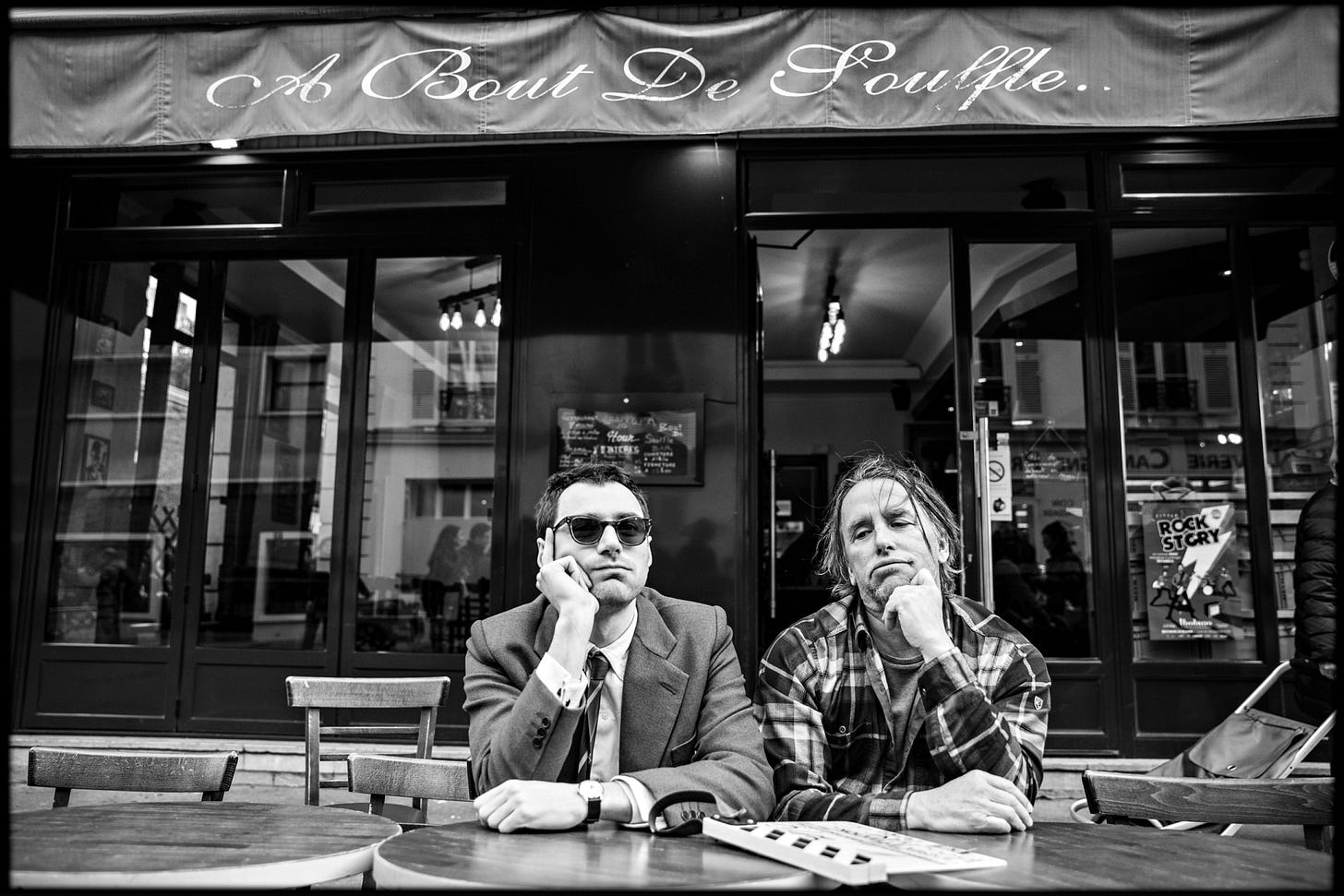
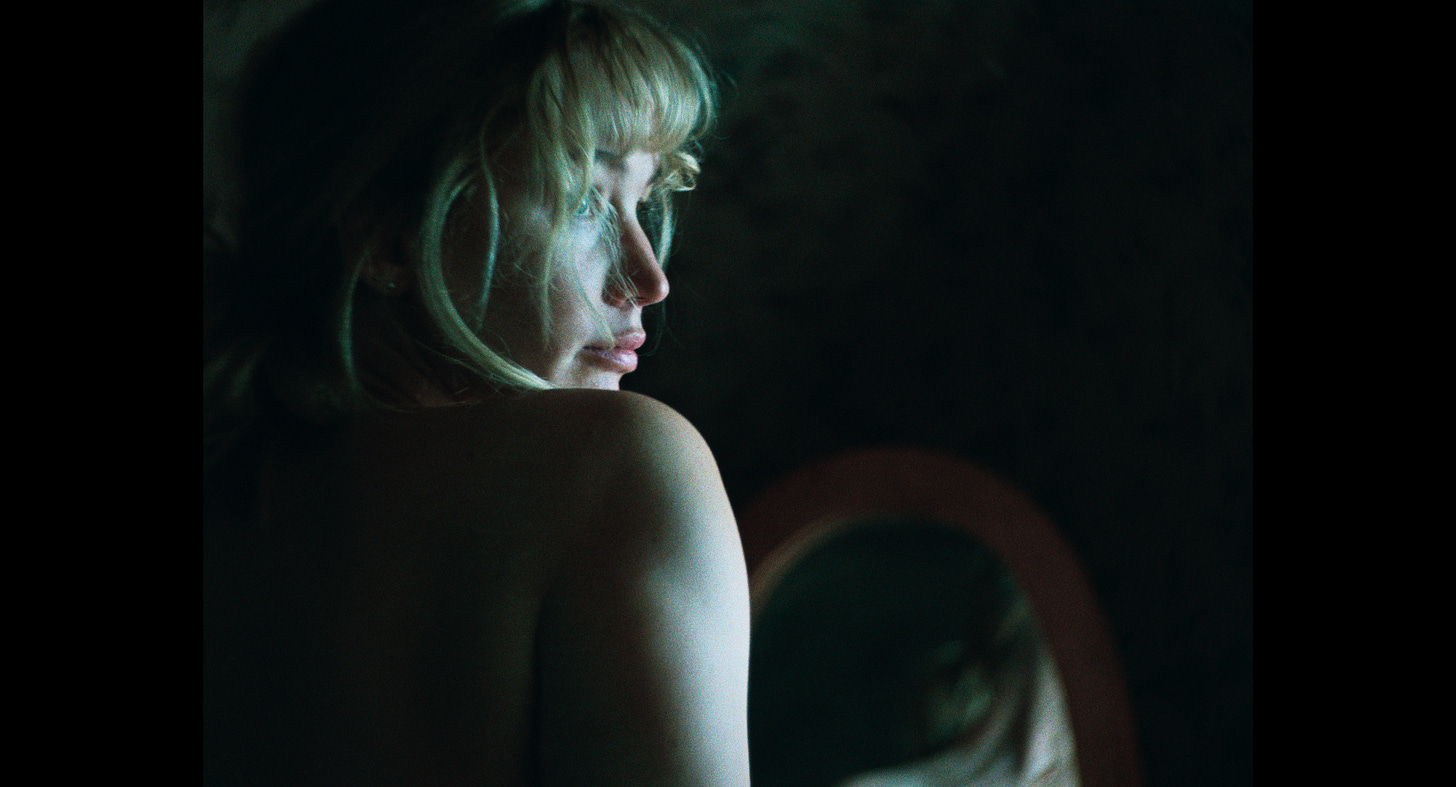
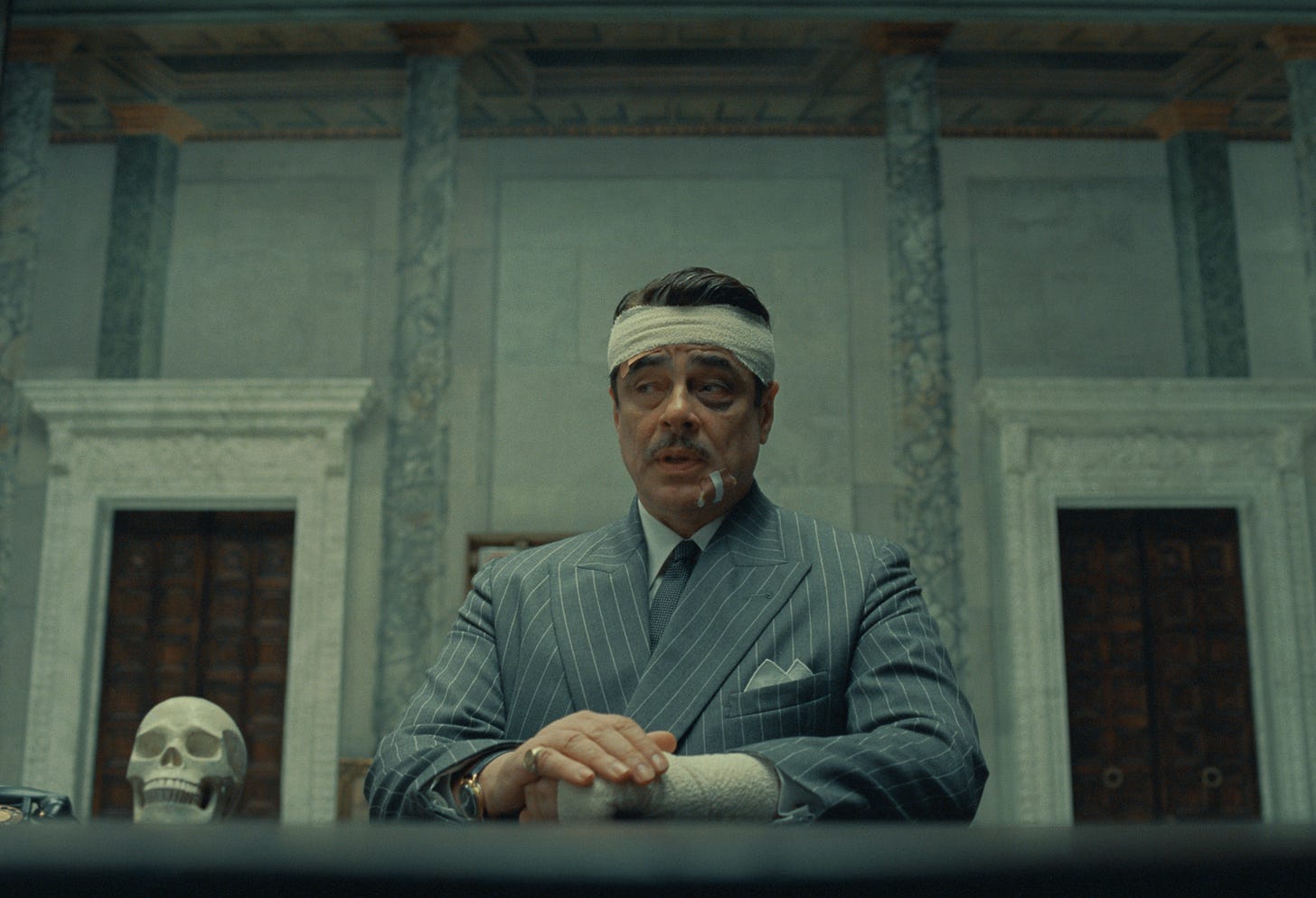
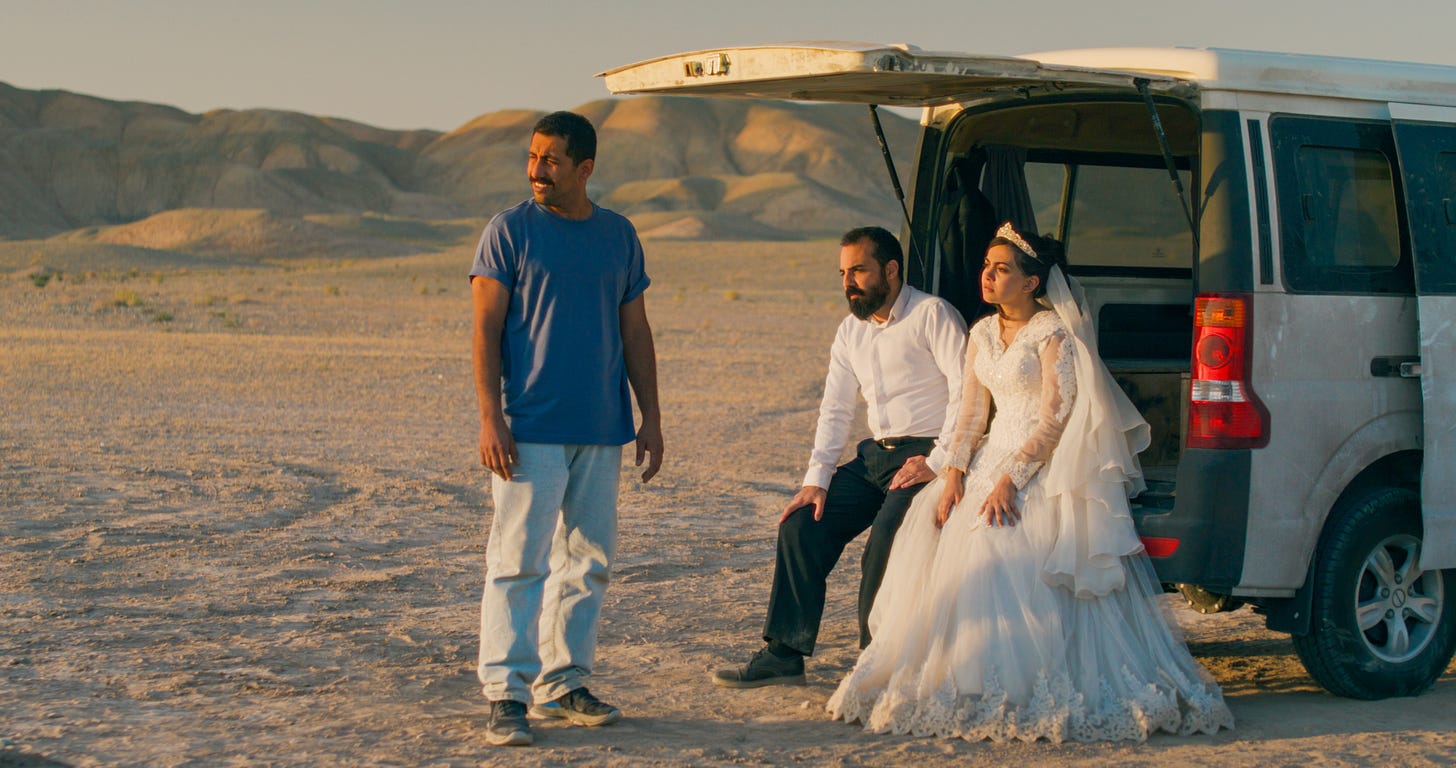
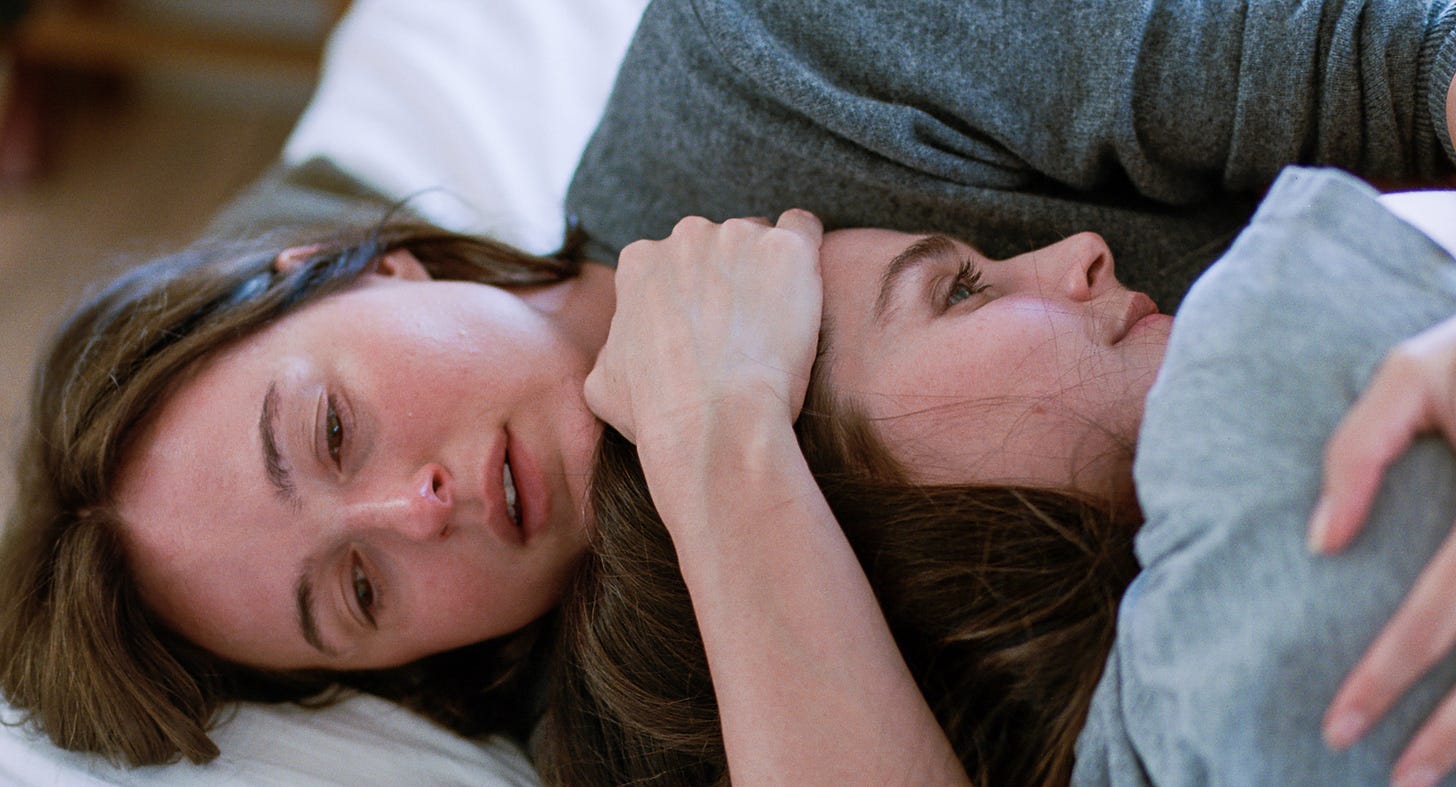
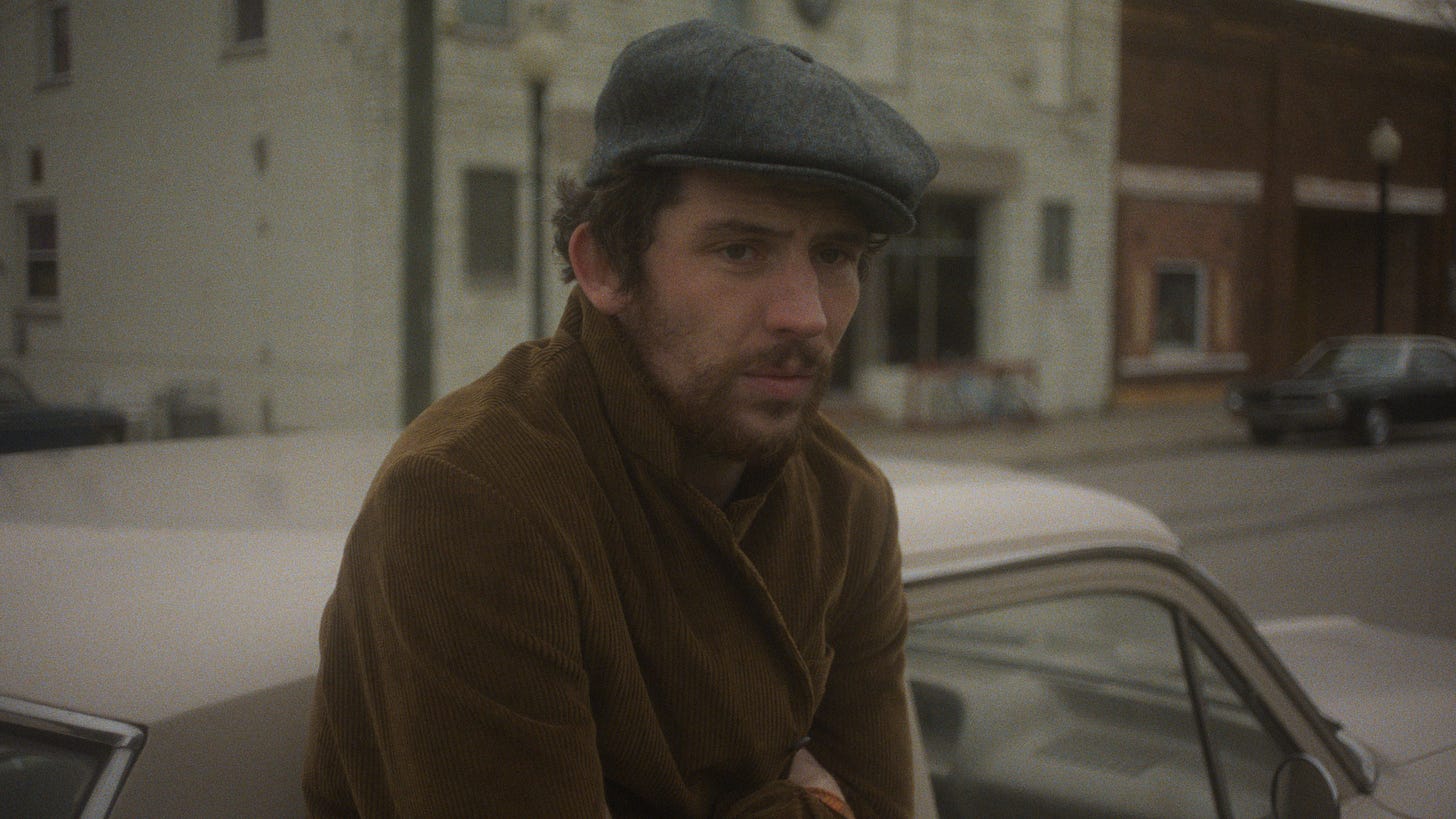
Hey I really loved this writing!
I just watched the Phoenician Scheme here in the theatre and I loved it. To me it’s such a clear example of Wes melding different qualities from different eras of his film-making; this had elements of the self-aware theatrical (Asteroid City) and, at the same time, it had the character narratives and performances of a Wes Anderson picture from a decade ago.
For me, this film helped reinforce the fact that Wes has, in fact, evolved quite a bit over the course of his filmmaking career.